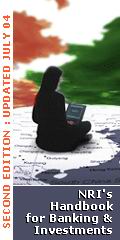|

|
Highest levels of political and economic uncertainty in 2008
“Global Risks 2008 points to a future of tremendous challenges, but also opportunities for business and government decision-makers to demonstrate their leadership,” said Professor Klaus Schwab, Founder and Executive Chairman of the World Economic Forum. “The interconnectedness of global risks discussed in this report reflects the need for a collaborative framework for response. The upcoming World Economic Forum Annual Meeting will provide a framework for those discussions.”
David Nadler, Vice-Chairman, Marsh & McLennan Companies (MMC), USA, said: “As the report says, systemic financial risk is the most immediate and, from the point of view of economic cost, most severe risk facing the global economy. With so many potential consequences of the 2007 liquidity crunch unresolved, the outlook at the beginning of 2008 is more uncertain than it was a year ago. The US Federal Reserve has projected direct losses related to sub-prime of US$ 150 billion; non-sub-prime financial losses may be considerably greater. Addressing the systemic financial risk identified in this report will be a key topic for business and political leaders in Davos this year.
“Energy supply is also a crucial issue. The global economy has demonstrated remarkable resilience to increases in energy prices since 2004. But the limits of resilience may be close to being reached. Over the next two decades the supply of primary fossil fuel will become tighter with the world economy becoming much more vulnerable to price shocks as a result. The report urges better dialogue at all levels ? between emerging and developed countries and between the corporate sector and government and regulators. A move towards a forward-looking regulatory framework is needed in order to ensure long-term economic viability. This framework should seek to unlock investment and innovation in cleaner energy and, ultimately, deliver an economic price for carbon.”
Risk mitigation:
increasing the role of financial markets and better country coordination are key
Despite the financial turmoil of 2007, the financial markets are seen as an increasingly important tool to transfer and mitigate an increasing variety of global risks. The growth of financial markets has opened up new possibilities to help mitigate risks, including the rapid emergence of a new market in insurance-linked securities (ILS), which help provide additional capital to the insurance industry to protect against major catastrophe losses. While the early “cat bonds” were issued into the capital markets to help mitigate losses from wind damage and earthquakes, the ILS market has grown considerably in recent years in the range of risks covered, with total bonds outstanding now at more than
US$ 34 billion.
Christian Mumenthaler, Member of the Executive Board of Swiss Re, who served for three years as the group’s Chief Risk Officer, said: “The development of the ILS market has increased the ability of insurers and reinsurers to accept peak risks such as US hurricanes. This has become increasingly important because climate change has elevated the frequency and severity of tropical cyclones. The extra insurance capacity available through these instruments helps private companies and governments mitigate and manage these peak risks.”
Besides ILS, a wide variety of other financial instruments are now being developed to transfer insurance risks, including weather derivatives. Mumenthaler added: “The weather derivatives market has grown at an explosive rate in recent years. For example, these instruments can provide rapid payments to governments and farmers who can use them to hedge against too little rainfall and excessive heat in the growing season, along with too much rain in the harvesting season. In this way, both the state and commercial growers can invest in crop production with a greater degree of confidence, helping to optimize food production and security.”
In Global Risks 2007, the Global Risk Network of the World Economic Forum warned of a growing under-appreciation of risk in financial markets, provided a snapshot assessment of a range of global risks for the decade ahead, and recommended the institution of country risk officers and flexible issue-based international coalitions to manage the complexity of the global risk environment.
Country Risk Officer: Establishing principles for country risk management
In Global Risks 2007, the establishment of country risk officers was recommended to help improve risk management at the national level. In Global Risks 2008, the report looks at the specific example of the United Kingdom’s Civil Contingencies Secretariat and establishes a set of principles for country risk management which may apply across different institutional arrangements. An international forum of country risk officers could potentially offer a much improved capacity to exchange information about inherent cross-border global risks, and also improve the global ability to anticipate and respond to risk.
Go back to first page ... Click here
CLICK FOR MORE FEATURES & STORIES
|
|




|






